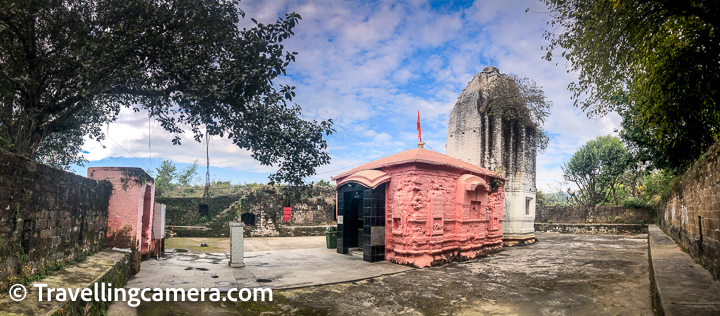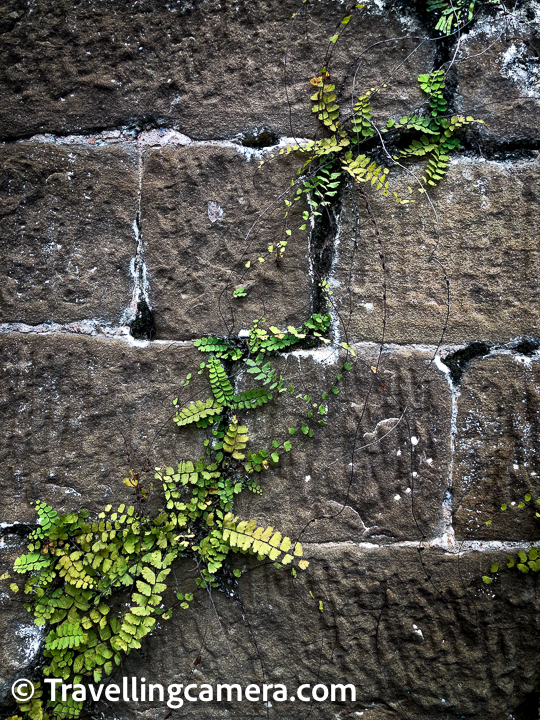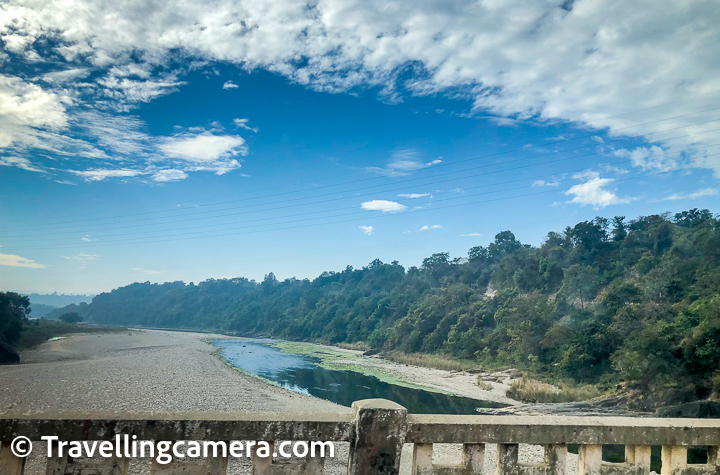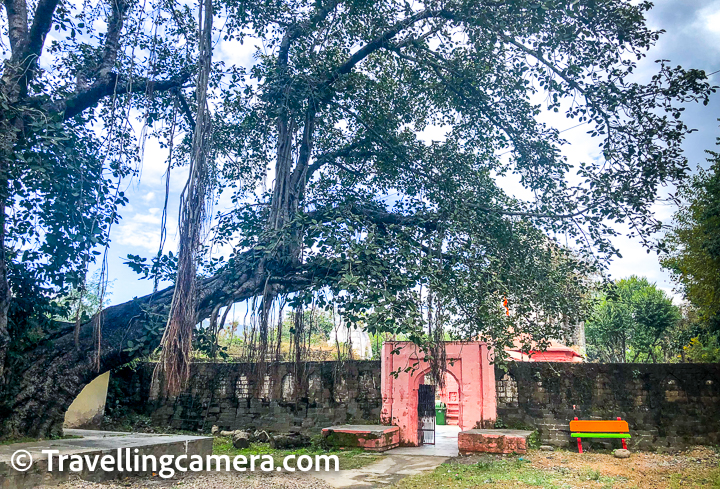800 Years old Ram Temple in Haripur, Himachal Pradesh || Ancient Structure that is crumbling because of apathy and neglect
Haripur, a town you will probably not take much heed of as you pass through Kangra in Himachal Pradesh, has a very interesting folklore associated with it. It was only when we read about it after our trip to Kangra. did we find out about it. And though we did visit the Haripur fort and accidentally spotted the famous temple of Lord Ram, it was only after reading about it on the Internet, did we realize how much more there is to this neglected town.
We will talk about the Haripur Fort in another post. But the Ram Mandir is actually right on the highway, but you are more likely to miss it as you drive past it. The temple is actually behind some shops or houses (I do not actually recall which of these), but I do remember that I noticed its shikhar on the left side as I drove by and alerted Vijay to the possibility of an interesting historical building existing behind the very mundane houses.
Related Blogpost - Garli Pragpur - A heritage village of Himachal Pradesh with beautiful havelis surrounded by snow covered Dhauladhar Himalayan Mountain ranges
And then immediately after crossing a U-bend while going downhill, we noticed an impressive gate on the left with a couple of school children climbing the stairs leading to it. At that moment, we did not automatically connect the gate with the shikhar that we had spotted earlier, but we were intrigued enough for me to stop the car and for Vijay to jump off to click a few pictures.
Related Blogpost - Indrunag Temple in Dharmshala, Himachal Pradesh - A mountain peak with spectacular views of Mcleodganj, Dharmpur and snow covered Dhauladhar Himalayan Ranges
The gate turned out to be a part of the temple complex after all. You had to climb a steep flight of stairs to reach the temple though. The gate has a large image of Lord Hanuman on its left pillar. The temple itself is in advanced stages of neglect. The masonry has eroded and the shikhar has been sieged by plants and bushes. Apparently there were also some caves near this temple that have now collapsed.
Related Blogpost - Tea Estates around Dharmshala town of Himachal Pradesh - Lush green landscapes surrounded by snow covered Dhauladhar Mountain Ranges in Himalayan State of India
And apparently there are 17 other such historical structures in Haripur, all in similar or worse stages of neglect. Some have also been "repaired" by locals, so one can spot cement plastering and even bathroom tiles on these ancient walls. They would be eyesores to say the least.
Related Blogpost - Ellora of Himachal Pradesh maintained by Archaeological Survey of India - Masroor Rockcut Temple || A Monolithic Temple in Kangra Region of Himalayan State, India
It is especially sad considering the temples are almost 900 years old. They were constructed during the reign of King Harish Chandra, a descendant of King Sansar Chand, who ruled Nandpur-Guler. One day on an hunting expedition, the King got separated from his group and was assumed dead. The hunting party returned to Nandpur and his wives became sati. His brother ascended the throne of Nandpur.
By the time the King reached back, the new King had officially taken over. Instead of staging a coup against his brother who had hurriedly assumed power, King Harish Chandra decided to build another Kingdom. He chose Haripur for this purpose and embellished this region with some an imposing fort and several beautiful temples. It is sad that these structures aren't being maintained and the local efforts, though well-intentioned, lack direction and thought.
Related Blogpost - Beautiful Church in Mcleodganj, Himachal Pradesh || St. John Church near Dharmshala Town
But one thing that worked this time was that we noticed something interesting on the roadside and we stopped to investigate. Through this curiosity, we discovered something of such historical importance. Before this, in several posts from our trip to Khajuraho, I had lamented the fact that we passed by something interesting but did not stop to explore and upon research later, it turned out to be something interesting. At least we do not have that same regret this time.









.jpg)
Comments